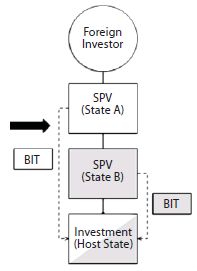Benjamin Franklin allegedly quipped that "an ounce of prevention is worth a pound of cure." Experience teaches that this wisdom is usually right and is applicable in a variety of situations. Making large-scale commercial investments in foreign markets is one of those situations.
Foreign investments generally are subject to a number of technical, commercial, and market risks. Certain sectors, such as mining, oil and gas, and other natural resource investments, also face significant political and legal risks from the host government due to their highly regulated nature and the fact that the exploitation of natural resources can implicate deep-seated sovereignty issues. These risks can lead to disputes between investors and host governments, in situations in which governments enact new regulations, seek modifications to the terms of existing agreements, delay or deny licenses and permits, or simply take possession of the operation all together.
The question of where and how these disputes are heard, and what claims can be brought depends on whether an investment has been structured to benefit from the protections accorded by international investment law. The modern form of international investment law is found in a network of several thousand bilateral and regional investment treaties designed to both protect and encourage foreign investment among treaty partners. To this end, they provide substantive protections against specific types of government action to qualifying "investors" from one treaty partner who makes qualified "investments" in the territory of another treaty partner. They do not serve as a wholesale substitute for the host country's domestic laws, but they do subject states to international law standards for certain acts. While the treaties vary in detail, they broadly protect against discriminatory treatment, uncompensated expropriations (or takings), the failure to provide adequate physical and legal protections, arbitrary actions by the government, prohibitions on the repatriation of profits, and government conduct that is considered unfair and inequitable. In addition to these protections, virtually all modern investment treaties give investors the right to sue the host government for breaches of the treaty in front of an international arbitral tribunal. Through these arbitrations, investors may seek financial compensation for losses caused by the government's breach of its treaty obligations. If successful, various international treaties give investors the right to enforce awards in jurisdictions where the host state may have assets (e.g., the ICSID Convention; the New York Convention; the Panama Convention).
By contrast, investors who do not fall under an applicable investment treaty have limited recourse against a host government. In most cases, they would be forced to bring their claims in the host state's courts and argue that the government's conduct violated its own laws. Alternatively, an investor could seek to persuade its own government to espouse its claim for it and to deal directly with the host government at the state-to-state level. This is a purely discretionary tool, however, that is rarely used by governments. Even in the limited circumstances where governments might choose to espouse a claim, they normally will require an investor to exhaust its remedies in the host state's local courts and to give up control of their claim, thereby effectively placing the investor at the mercy of the political and diplomatic exigencies of the time.
Given the difficulties in suing in a host state's courts or seeking diplomatic intervention, ensuring that a foreign investment is covered by international investment law is the safest course of action. Ensuring this protection, however, requires companies to structure their investments in a way that brings them within the scope of an applicable investment treaty. To do this, the company must identify the treaties to which the host state is a party. In some cases, the host state will have a treaty with the foreign investor's home country. In that case, a direct investment into the host state could be protected. In other situations, the host state and the investor's home state will not have an investment treaty. This may not preclude coverage, however, as many treaties will protect investments that are directly or indirectly owned. Thus, an investor may be able to obtain protection by investing through existing or newly created corporate entities (CE) in one or more countries that have treaties with the host state. Structurally, an investment of this type could look like the accompanying illustration (see next page).
In this illustration, the foreign investor structures its investment through two corporate entities, both of which are located in countries that have bilateral investment treaties with the host state. Depending on the circumstances, structuring an investment this way could allow an investor to assess which treaty offered the greater protection in the event an investment dispute arose. Investors, of course, have flexibility to determine the type of structure that best suits their commercial, tax, and legal needs.
Once the universe of potentially applicable treaties is identified, the foreign investor must examine the definitions of "investor" and "investment" set out in each, as well as the specific substantive protections, to determine which treaties provide the strongest protections. It is critically important to understand the specific requirements to qualify as an "investor" and to make an "investment" under the treaty. Some treaties, for example, determine whether a corporate entity is an investor based solely on the entity's place of incorporation.
Other treaties look to both the place of incorporation and where the company's headquarters or principal place of business is located. Yet other treaties look past the place of incorporation to determine who owns or controls the "investment." These distinctions affect whether a company could qualify as an "investor" under a particular treaty and what steps would be necessary to ensure compliance.
Investors should also assess the substantive protections and dispute resolution procedures provided by the treaties. While, as noted above, investment treaties generally provide broad protections against adverse government action, certain treaties contain critical carve-outs (e.g., for tax related measures taken by the host state) or conditions (e.g., limitations periods, exclusion clauses) that could restrict the available protections. In addition, treaties can impose differing conditions precedent on initiating arbitration. A significant percentage of investment treaties merely require an investor to wait a specified period of time after a dispute arises (typically, six months). Others, however, require investors to first submit disputes to the local courts in the host country and allow an investor to proceed to arbitration only if the dispute is not finally resolved within a specific period of time (normally, 18 months). Understanding these differences will allow an investor to make an informed decision as to which treaty or treaties can provide the greatest protection.
The ideal time to seek out investment protection is at the investment- planning stage. At that point, companies have the most flexibility in structuring deals. They can assess the potential tax, foreign investment protection, and other consequences of various proposed structures and work to create a structure that achieves both strong investment protection and maximum commercial advantages.

If a company has already made an investment in a country and determines that it is not protected by an applicable treaty, it still may be able to obtain investment protections. In some cases, companies may restructure their investments to benefit from treaties that the host government has enacted. They must do so, however, before any of the facts or circumstances giving rise to a dispute occur or become known.
Investment treaties give investors and investments an additional layer of protection against adverse government actions. They allow investors to hold governments accountable to international legal standards and not just their own laws. In addition, this protection de-politicizes the dispute resolution process by giving investors a direct right of action against the host government for breaches of international law. Investors can decide whether to pursue a claim based on their own strategic, commercial, and economic interests. And, these protections allow investors to seek real compensation for their losses.
Accessing international investment law protection may allow foreign investors to protect themselves against certain adverse government action. Applying an ounce of prevention at the earliest possible stage— i.e., determining whether to protect a new investment and whether an existing investment is protected before a dispute arises—can give investors a degree of security otherwise not available to them. Ideally, an investment dispute will not arise. If one does, however, the preventative efforts put forward early in the project will be well worth the time and effort.
Originally published by New York Law Journal on November 27
The content of this article is intended to provide a general guide to the subject matter. Specialist advice should be sought about your specific circumstances.



